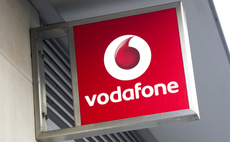Network operators fear higher costs if Huawei is barred from providing 5G and other network hardware in the UK
Vodafone and EE owner BT are to lobby the government over Huawei involvement in the UK's 5G network roll-out, claiming that there is no evidence to justify an outright ban. The companies believe...
To continue reading this article...
Join Computing
- Unlimited access to real-time news, analysis and opinion from the technology industry
- Receive important and breaking news in our daily newsletter
- Be the first to hear about our events and awards programmes
- Join live member only interviews with IT leaders at the ‘IT Lounge’; your chance to ask your burning tech questions and have them answered
- Access to the Computing Delta hub providing market intelligence and research
- Receive our members-only newsletter with exclusive opinion pieces from senior IT Leaders



















